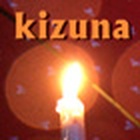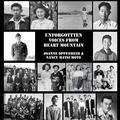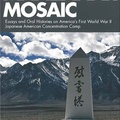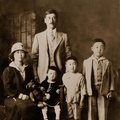I woke on the morning of March 11 to an email from a friend saying she had just heard about a massive quake in Japan and she hoped that my relatives and friends there were safe. It was the first of many such emails and phone calls I received in the days and weeks that followed. Like most of my Nikkei friends, I knew no one in Sendai, or in Miyagi and Iwate Prefectures. Yet I understood that to non-Japanese those place names meant nothing, and I shared the impulse to check-in. We were concerned and we wanted to be reassured. We felt helpless as we watched images of the 30-foot-tall tsunami sweeping away boats, homes and trucks as effortlessly as a mischievous surf steals a child’s toys from the beach. The impartial nature of the eyewitness videos—so different from the polished, bombastically scored disaster movie scenes that we watch with terror and glee—made them particularly horrifying.
As I reached out to my relatives and friends in the Tokyo region, each assured me that they were okay. Two relatives were walking home when the road began to lurch and buckle beneath them. A friend survived a violently swaying train ride and walked for an hour and a half to reach her son’s school. My pregnant cousin, cut off from phone contact from her husband and mother, sat home alone for a day not knowing where they were. Their relations in Aomori and Niigata Prefectures were fine. But the situation changed daily as the radiation threat from damaged nuclear reactors at the Fukushima Daiichi power plant grew. American television coverage became more shrill, reporters more petulant that information was not forthcoming from Japanese government officials and the Tokyo Electric Power Company. I could feel panic rising in America, leading to an odd disconnect with the calmer attitude of Japanese friends and relatives.
Throughout this drama, there was one set of relatives I was reluctant to call. I had not been in touch with them for years, and felt guilty for letting our connection atrophy. Yet they lived in Chiba Prefecture, closer to the Fukushima nuclear power plant than Tokyo. I finally gathered the courage to contact them, and their response was immediate. Over the telephone, my second cousin Makoto told me he could see smoke from the factory fire touched off from the quake from his home, and added, “America has been so generous to Japan—thank you.”
I discovered that his mother, Keiko, who had long ago played host to me on countless visits and overnight stays, was about to be discharged after a month-long hospitalization, and had been seriously ill for the past four years. I remember her as an energetic and efficient woman who ran her household like a CEO, issuing delicious meals and snacks at regular intervals, caring for her chronically ill husband and overseeing her three children’s lives. She once confided to me that she had purchased an engagement ring for her son, in anticipation of the day when he proposed to his future wife. Then she shocked me by asking me if I might be interested in the job, since her son, an intellectual doctor, just “doesn’t understand” such practical matters. I politely declined.
I called their house a few days later to speak with Keiko. Her voice was weak but she sounded overjoyed to hear from me. “Nancy,” she said in a soft, lilting voice, “I have been to New York many times these past years, on tours.” I told her I wished she had looked me up, but she said, untruthfully, that she did not know how to reach me. I felt the pang of a wayward daughter. The conversation was warm, though I felt sad afterward. She had sounded so frail; I realized that the quake and the nuclear threat must seem to her a further disintegration of a world that once was whole.
Makoto and I have begun what I hope will be a regular exchange of emails. As we mourn the thousands of lives lost or displaced, he gives me updates from Chiba and his mother’s health and we exchange language lessons. Against the backdrop of disaster, one frayed connection to the past has been made strong again.
© 2011 Nancy Matsumoto






